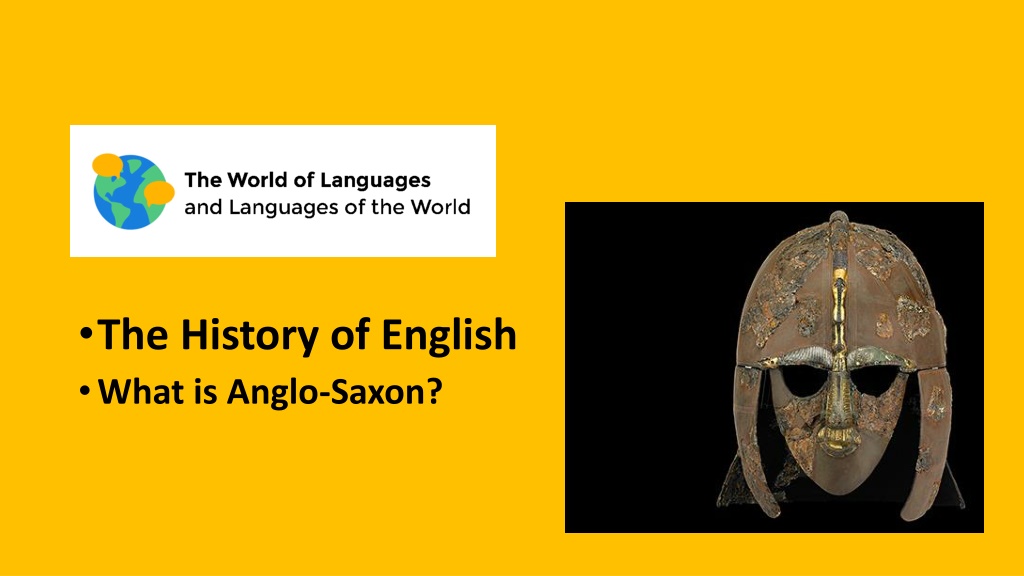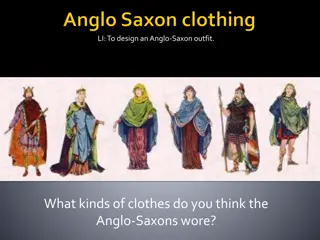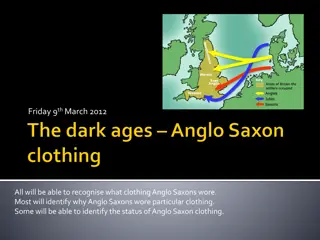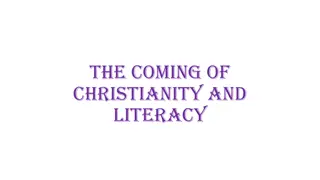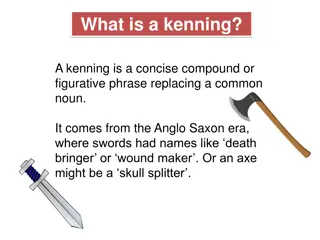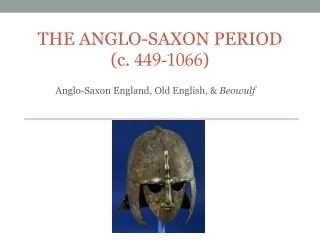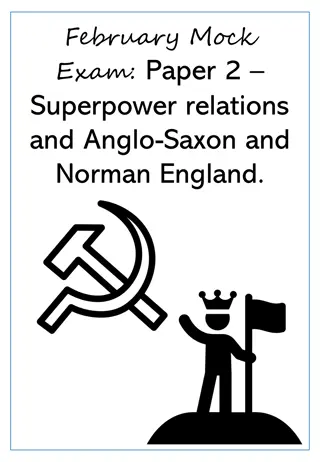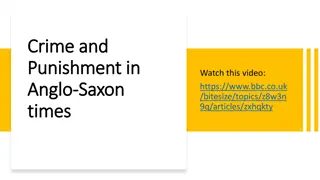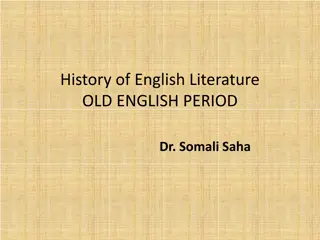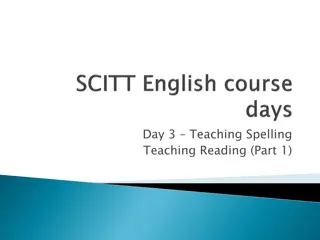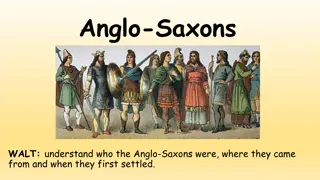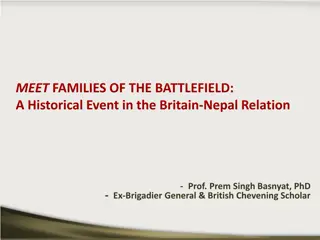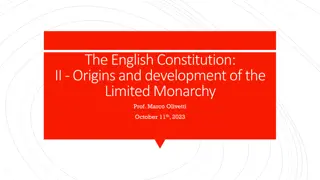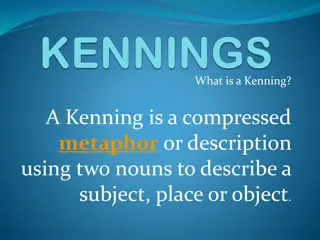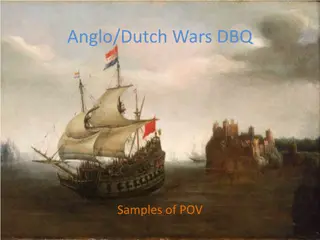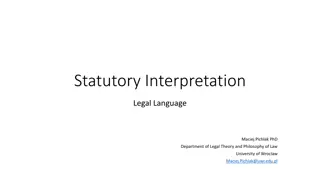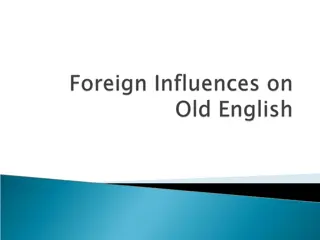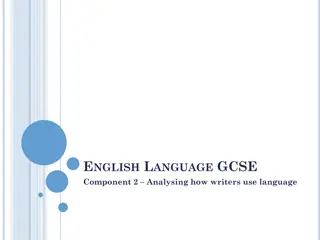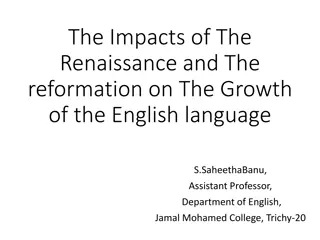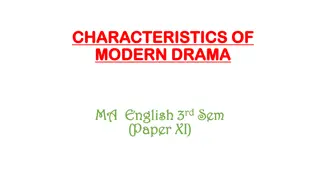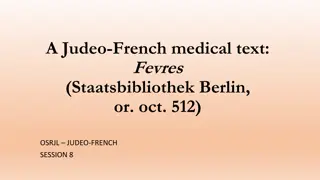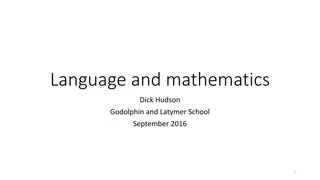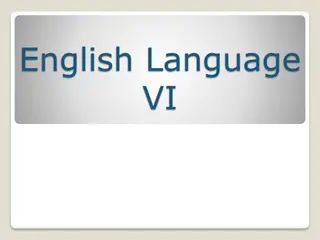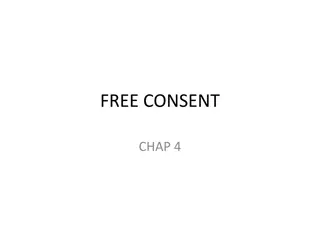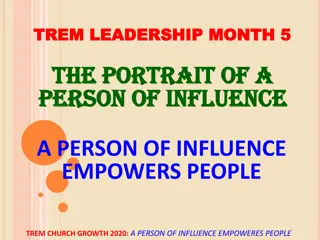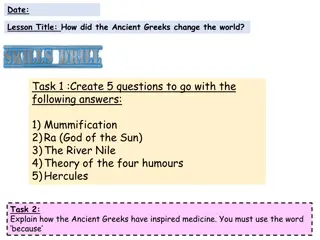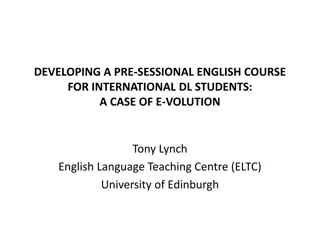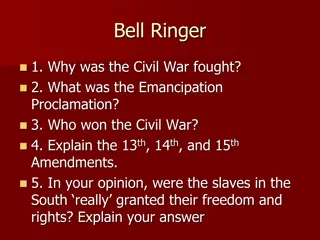The Influence of Anglo-Saxon Language on Modern English
Explore the roots of Modern English in the Anglo-Saxon period, where Germanic tribes like the Angles, Saxons, and Jutes shaped the language, culture, and politics of the British Isles over 600 years. Discover how Old English, though different from present-day English, still influences a significant portion of our vocabulary. Uncover the survival of key Anglo-Saxon words that form the bedrock of our language and identity, making up around 80% of our daily speech.
Download Presentation

Please find below an Image/Link to download the presentation.
The content on the website is provided AS IS for your information and personal use only. It may not be sold, licensed, or shared on other websites without obtaining consent from the author. Download presentation by click this link. If you encounter any issues during the download, it is possible that the publisher has removed the file from their server.
E N D
Presentation Transcript
The History of English What is Anglo-Saxon?
What did Old What did Old English Sound English Sound Like? Like? Listen to the opening lines from the poem Beowulf written in Old English.
Where did Anglo Where did Anglo- -Saxon come from? Saxon come from? During the 5th century, Germanic tribes, the Angles, the Saxons and the Jutes, crossed the North Sea from what today is Denmark, The Netherlands and northern Germany. At that time the inhabitants of Britain spoke a Celtic language. But most of the Celtic speakers were pushed west and north by the invaders - mainly into what is now Wales, Cornwall Scotland and Ireland. The Anglo-Saxon period lasted for 600 years and,in that time, the language,culture and politics of the British Isles were transformed.
Old English Old English The invading Germanic tribes spoke similar languages to each other, which in Britain developed into what we now call Old English. Old English did not sound or look like English today. Native English speakers now would have great difficulty understanding Old English. Nevertheless, about half of the most commonly used words in Modern English have Old English roots. Old English was spoken until around 1100. The invaders were our cousins with similar life experiences.
Do you Do you recognise recognise this prayer? this prayer? F der ure u e eart on heofonum; Si in nama gehalgod to becume in rice gewur e in willa on eor an swa swa on heofonum. urne ged ghwamlican hlaf syle us tod g and forgyf us ure gyltas swa swa we forgyfa urum gyltendum and ne gel d u us on costnunge ac alys us of yfele so lice
What has survived? What has survived? It's It's the bedrock of our language. the bedrock of our language. It's It's who who we are we are and what we think. and what we think. You can speak for long periods of time without using words that aren't Anglo-Saxon. 80% of what we say can be traced back to Anglo-Saxon (written words, less so). Beer, water, ale, wine, drink, Fish, bread, milk, butter, cheese, sheep, hog, Floor, roof, thatch, beam, stool, Eye, ear, tongue, teeth, nose, nostril, back, hand, head, foot, doom, heart Speech, fight, blood, fear, fright, fall, sleep, wake, life love, laughter, well, wisdom, good Mother, father, daughter, sister, brother, son, horse, wife, husband, darling, kith and kin, man, God Fee, fellow, pennies, pounds, farthing, odds and ends The marriage ceremony to have and to hold. What are these words concerning? What kind of words are these? Are there any links?
Grammar, Prefixes and Suffixes and Poetry Grammar, Prefixes and Suffixes and Poetry -hood -ing -ness -dom Plural endings "s" as in birds and "en" as in children or oxen. Past tense verb ending "ed" and in asked. Anglo-Saxon is prototonic: it stresses the first syllable. Anglo-Saxon poetry often alliterates. Anglo-Saxon poetry doesn't rhyme because the first sound is stressed.
The Exter Book is one of the greatest literary treasures to survive from Anglo-Saxon England. Produced at some point in the late 10th century, the manuscript written mainly in Old English and exclusively in verse brings together poems as short as one line and as long as 25 pages. There are over 90 riddles in the Exter Book it was a tool to teach language, and a way to entertain friends. An Anglo An Anglo- -Saxon Riddle Riddle Saxon A moth ate words. To me that seemed a fantastical event, when I found that wonder out, that a worm swallowed the poem of a some person, a thief in darkness, a glorious statement and strong its foundation. The thieving stranger was not a whit more wise that he swallowed those words. Mo e word fr t. M t uhtewr tlicu wyrd, ic t wundor gefr gn, t se wyrm forswealg wera gied sumes, of in stro, rymf stne cwideond s strangan sta ol. St lgiest ne w swihte gl awra, e h m wordum swealg.[1]
How do we know about the language? How do we know about the language? Sources Manuscripts Texts Inscriptions Runes: The Caistor Rune pictured here Place Names Coins Bede (wrote it down)
Over to you! Can you solve the Anglo-Saxon puzzle? Try the Linguistics Olympiad puzzle in your workbook
Over to you! Can you solve the Anglo-Saxon puzzle? Try the Linguistics Olympiad puzzle in your workbook
Plenary: Countdown Plenary: Countdown 5 Anglo-Saxon words 4 Sources of our Anglo-Saxon knowledge 3 Places that brought Anglo-Saxon to our shores 2 Grammatical influences on modern day English 1 Poem in Old English
